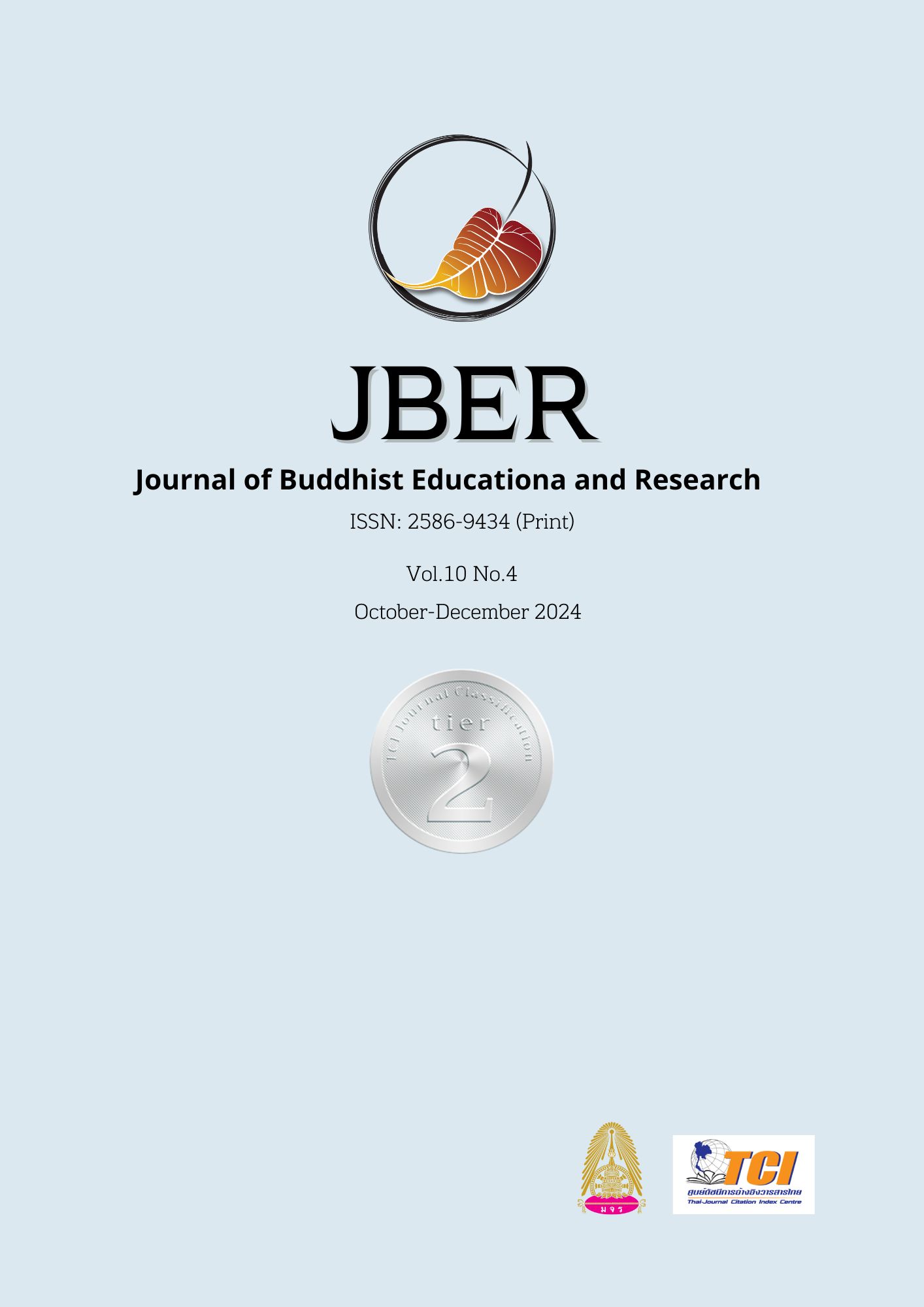The Factors Promoting Membership of Teacher's Professional Learning Communities in Educational Institutions under the Secondary Educational Service Area Office Bangkok 2
Keywords:
Teachers' Professional Learning Community, educational institutions, BangkokAbstract
This research aimed to 1) examine the relationship between groups of external and internal variables that promote teachers’ professional learning community (PLC) membership in educational institutions under the Office of the Secondary Education Service Area 2, Bangkok, and 2) analyze how external and internal factors explain teachers’ PLC membership using these variable groups. The sample consisted of 99 teachers under the Office of the Secondary Education Service Area 2, Bangkok. Data were collected using a 6-level rating scale ranging from "most true" to "not true at all," with discriminating power (r-Item Total Correlation) ranging from .290 to .797 and a reliability score by Cronbach’s alpha coefficient of .959. Data analysis employed basic and inferential statistics for hypothesis testing. The results showed that the relationship between the four variable factors was mostly moderate (r = .429 to .717, P<.01), and the relationship between these variables and teachers' PLC membership was moderate to high (r = .603 to .756, P<.01). Predictive analysis revealed that internal factors, specifically knowledge and understanding of member roles (X₁) and attitudes toward professional learning communities (X₂), explained 64% of teachers' PLC membership. When external factors, such as administrators' perception of academic leadership (X₃) and support from colleagues (X₄), were added, the explanatory power increased to 68.5%, representing a 4.5% improvement over internal factors alone.
References
กานติมา กานดา. (2566). ภาวะผู้นําทางวิชาการของผู้บริหารสถานศึกษาที่ส่งผลต่อการเป็นชุมชนแห่งการเรียนรู้ทางวิชาชีพของครู สังกัดสํานักงานเขตพื้นที่การศึกษาประถมศึกษาสมุทรสาคร. วารสารวิชาการสถาบันพัฒนาพระวิทยากร, 6(1): 15-27.
ชวลิต ชูกำแพง. (2565). ชุมชนแห่งการเรียนรู้สู่การวิจัยในชั้นเรียน. วาสารครุทรรศน์, 1(1): 53-63.
นพมาศ พยุงวงษ์. (2564). ปัจจัยเชิงสาเหตุพหุระดับที่ส่งผลต่อความเป็นชุมชนแห่งการเรียนรู้ทางวิชาชีพของครูประถมศึกษา จังหวัดชลบุรี. วารสารศึกษาศาสตร์ มมร, 11(1): 11-22.
นริศ บุญญานุพงศ์, ช. พ. (2566). การรับรู้การสนับสนุนจากองค์การและแรงจูงใจภายในที่พยากรณ์ต่อประสิทธิภาพการสอนของครูในโรงเรียนที่สังกัดสำนักงานเขตพื้นที่การศึกษาประถมศึกษานครศรีธรรมราช เขต 4. ก.ค. 5.
พิมพันธ์ เดชะคุปต์, พ. ย. (2562). การเรียนรู้เชิงรุกแบบรวมพลังกับ PLC เพื่อการพัฒนา (พิมพ์ครั้งที่ 1). ศูนย์หนังสือจุฬา/chula.
เมธาสิทธิ์ ธัญรัตนศรีสกุล. (2560). ชุมชนแห่งการเรียนรู้ทางวิชาชีพ:แนวทางปฏิบัติสำหรับครู. ว.มทรส. มนุษยศาสตร์และสังคมศาสตร์, 2(2), 214-228.
วิโรจน์ สุวรรณประไพ. (2564). ทัศนคติที่ส่งผลต่อประสิทธิผลการปฏิบัติงานของบุคลากรภาครัฐในหน่วยงานเทศบาลเมืองกระบี่. มหาวิทยาลัยสงขลานครินทร์.
เสถียร อ่วมพรหม. (2560). แนวทางการสร้างชุมชนแห่งการเรียนรู้ทางวิชาชีพ. ศูนย์หนังสือจุฬา/chula.
เอกพล อยู่ภักดี. (2560). ปัจจัยทางการบริหารที่ส่งผลต่อชุมชนแห่งการเรียนรู้ทางวิชาชีพของครูในโรงเรียน สังกัดสำนักงานเขตพื้นที่การศึกษามัธยมศึกษา เขต 30. วารสารวิจัยมหาวิทยาลัยขอนแก่น (ฉบับบัณฑิตศึกษา) สาขามนุษยศาสตร์และสังคมศาสตร์, 5(2): 36-45.
Bloom. (1976). Human Characteristics and School Learning. Mc Graw-Hill.
Davis, T. (1989). Effective school and effective teachers. Allyn & Bacon.
Osama Al Mahai. (2022). Professional Learning Communities in Private Schools in Bahrain and Oman:Reflection on Two Cases. ECNU Review of Education 6(3): 469-484.
Downloads
Published
How to Cite
Issue
Section
License
Copyright (c) 2024 Journal of Buddhist Education and Research (JBER)

This work is licensed under a Creative Commons Attribution-NonCommercial-NoDerivatives 4.0 International License.





